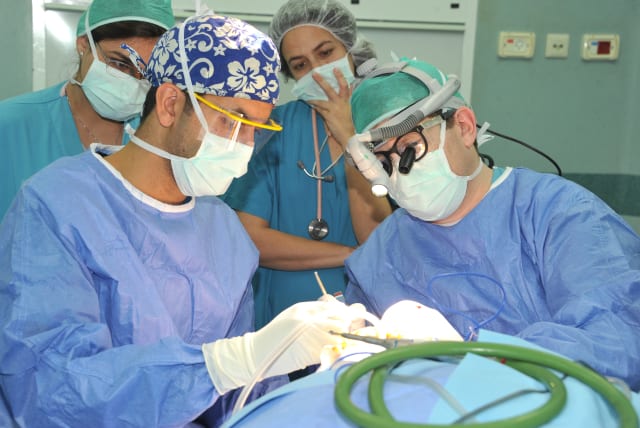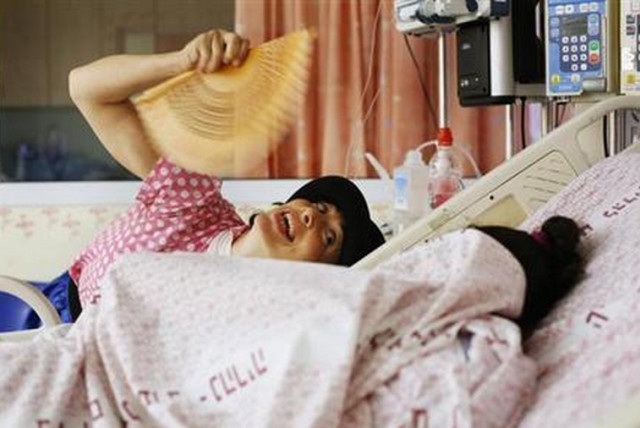Vagal-nerve stimulator implanted for first time into ten-month old epilepsy patient

Implantation of epilepsy treatment device marks first in such a young and low weight patient, says pediatric neurosurgeon.
A 10-month-old baby boy weighing only 5.5 kilos who suffers from epilepsy has undergone the implantation of a vagus nerve stimulator (VNS) at the Galilee Medical Center in Nahariya. The vagus nerve is one of the 12 cranial nerves that go from the brain to the rest of the body.
Only patients weighing 20 kilos or more typically undergo this operation, making it a significant achievement in pediatric neurosurgery; at lower weights, the body area available for the operation is severely limited. The device is designed to help those with drug-resistant epilepsy when traditional treatments fail to control seizures.
Dr. Sergey Abeshaus, head of Pediatric Neurosurgery at the hospital, said that the best solution was the implantation of an advanced SenTiva VNS pacemaker. He stressed the life-changing benefits of this treatment, which involves electrical stimulation of the vagus nerve to help reduce the frequency, intensity, and duration of seizures by suppressing abnormal electrical activity in the brain.
New lease of life for 10-month-old
The pacemaker consists of a battery that is implanted under the left clavicle (collarbone) or in the armpit, as well as an electrode that is implanted on the left vagus nerve. It sends a nerve impulse and stimulates the nerve, helping to suppress the abnormal electrical activity and thus reducing the frequency of seizures, including their length and intensity.
The infant, a resident of a village in the Galilee, suffered brain damage at the time of his birth due to an oxygenation problem and has since suffered from repeated convulsions. His weight is very low due to various problems from which he suffers. The Emek Medical Center in Afula, to which the Nahariya hospital referred the tiny patient, will activate the pacemaker in the coming days.
“Treatment with the pacemaker leads to an improvement in the quality of life, a significant reduction of the seizures or even their cessation, and, in some cases, also prevents life-threatening situations that could be caused if this were not implemented,” Abeshaus explained.
Abeshaus has implanted hundreds of pacemakers in adults and children in northern Israel, but this was the first time he performed this procedure on a baby so young and so small.
Jerusalem Post Store
`; document.getElementById("linkPremium").innerHTML = cont; var divWithLink = document.getElementById("premium-link"); if (divWithLink !== null && divWithLink !== 'undefined') { divWithLink.style.border = "solid 1px #cb0f3e"; divWithLink.style.textAlign = "center"; divWithLink.style.marginBottom = "15px"; divWithLink.style.marginTop = "15px"; divWithLink.style.width = "100%"; divWithLink.style.backgroundColor = "#122952"; divWithLink.style.color = "#ffffff"; divWithLink.style.lineHeight = "1.5"; } } (function (v, i) { });

